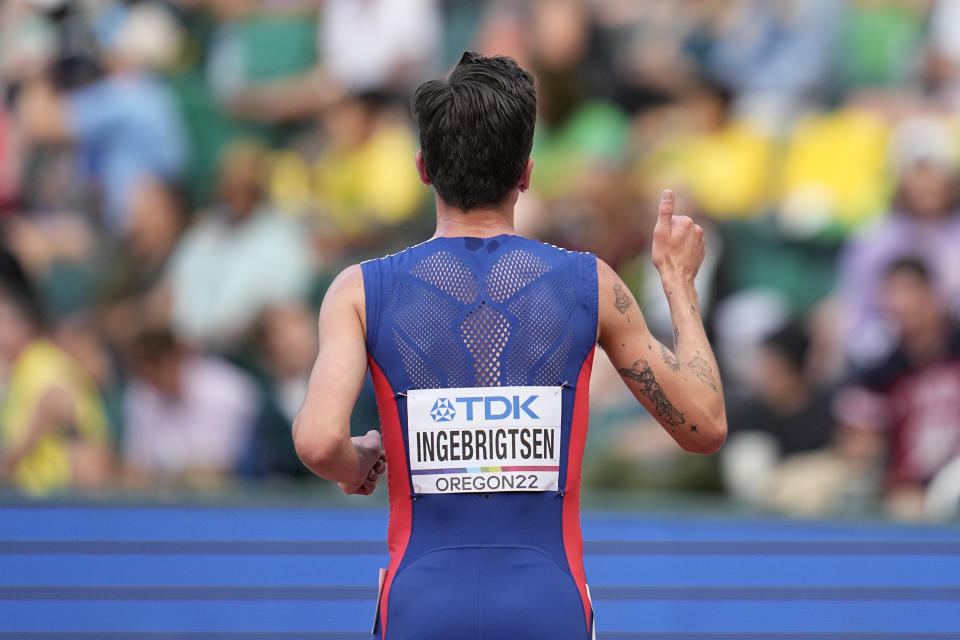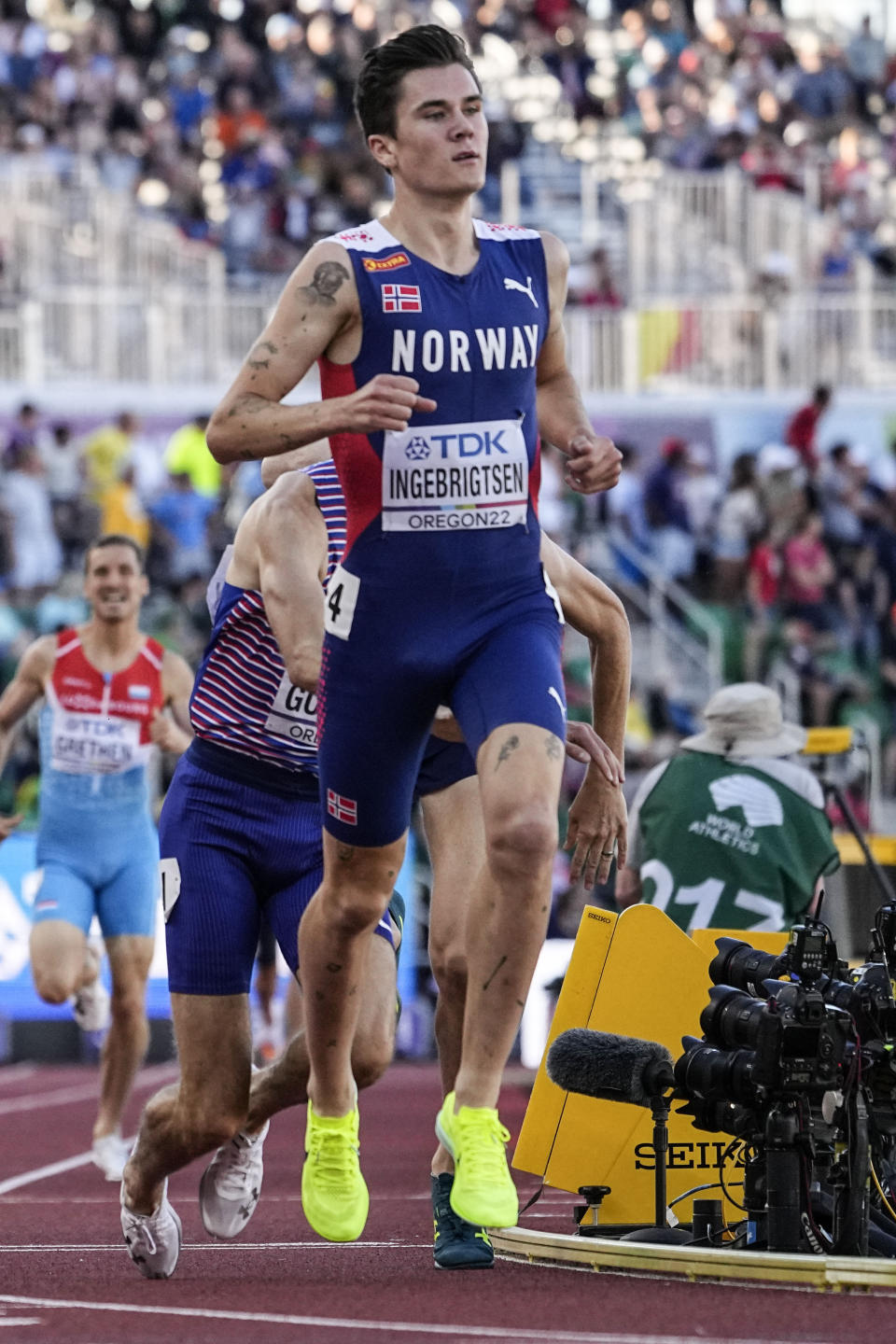From TV to track, runner Jakob Ingebrigtsen star on the rise
- Oops!Something went wrong.Please try again later.
EUGENE, Ore. (AP) — For five seasons and 25 episodes, Jakob Ingebrigtsen has been constantly shadowed by cameras.
Such is the price of fame for the star of a Norwegian documentary series called “Team Ingebrigtsen,” which chronicles the life and adventures of Jakob, his brothers and his family and what it takes to be Olympic-caliber runners.
Spoiler alert: The finale last season culminated with Ingebrigtsen winning the Olympic 1,500-meter gold at the Tokyo Games.
But how he got there, to the TV screen and to that gold medal, can be attributed to his big brothers. It was Henrik and Filip who fostered a love of running over soccer and cross-country skiing. It was their guidance and tutelage, along with their father, that made him what he is today — uncatchable.
Ingebrigtsen is the favorite in the 1,500-meter final Tuesday at the world championships in Eugene, Oregon, and a contender in the 5,000, as well.
Don't believe it? Just ask him.
“We’ve always had the mentality that we’re the best,” Ingebrigtsen said.
One thing he's never lacked is confidence. He’s not content with just winning, either, but wants to win big. Like world-record big.
It’s not arrogance as much as a belief based on training. His family has found a workout method that worked for Henrik, who is 31 and a two-time Olympian. It worked for Filip, who is 29 and a 2017 world championships bronze medalist in the 1,500. And it’s certainly working for Jakob, the 21-year-old who has won gold medals at every stage of his career.
The architect behind the success has been their father, Gjert, who is taking a step back and leaving Jakob's training to his older brothers. They’ve uncovered a formula to unlock all that talent — an aerobic capacity-based training plan.
Simply put: Hard work. Tell Jakob Ingebrigtsen what to do, what tempo to run it and he'll take it from there.
“We've found a program and philosophy that’s probably one of the best in the world to run fast in the 800-meter event up to the half marathon," Ingebrigtsen said. "So we’re definitely not trying something new. We just found something that works to be a very good runner. We stick to what works.”
Leif I. Tjelta, a professor of sports science who recently retired from the world of academia, published a 2019 paper on the Ingebrigtsen family. The title was: “Three Norwegian brothers all European 1500 m champions: What is the secret?”
The conclusion of the piece in the International Journal of Sports Science & Coaching: “Together with an appropriate training regime, strong family support and mental toughness have brought these brothers to a top international level in distance running.”
In an email, Tjelta added that, “good genes is of course a part of it."
A vast race knowledge doesn't hurt, either.
“Tactically, he is the smartest racer I know,” Australian runner Stewart McSweyn said of Jakob Ingebrigtsen. “He’s got so much belief.”
The bond between the brothers is readily apparent in their TV series. Like at the end of last season's show when the family greeted Jakob at the airport upon his return from Tokyo. They presented him with a gold jacket to match his medal color.
“It’s a lot of fun to be able to have that sort of documentary and show — everybody following along on how we’re actually living and what we’re doing, what we’re thinking, and how we’re training,” he said. "We’re really happy to have gotten that chance to reach out to so many people.”
Next on the list of people he wants to reach: Those who make the Olympic schedule. He’s lobbying for a way to run the 1,500 and the 5,000 meters at the 2024 Paris Olympics. It wasn't as feasible for him in Tokyo, with a heat of the 1,500 and 5,000 on the same day. So he elected to concentrate on the 1,500, where he beat out Timothy Cheruiyot of Kenya for the title.
This week in Eugene, he's got two days between the 1,500 final and the start of the 5,000. More than enough time to recover.
Really, though, he just wants the track world to start looking outside of the box — to doubles that are nontraditional. Take Sifan Hassan of the Netherlands for instance, who pulled off a remarkable triple in Tokyo by winning golds in the 5,000 and 10,000, along with a bronze in the 1,500.
“I believe that the organizers want the biggest stars to be able to perform as well as possible,” Ingebrigtsen said. “But you have to adapt to the newer times, and maybe the 100 and 200 (double) is not as relevant as it was before. ... So you can’t have a double that’s existing today. You need to find that new double. That’s where the athletes are at.”
___
More AP sports: https://apnews.com/hub/sports and https://twitter.com/AP_Sports


